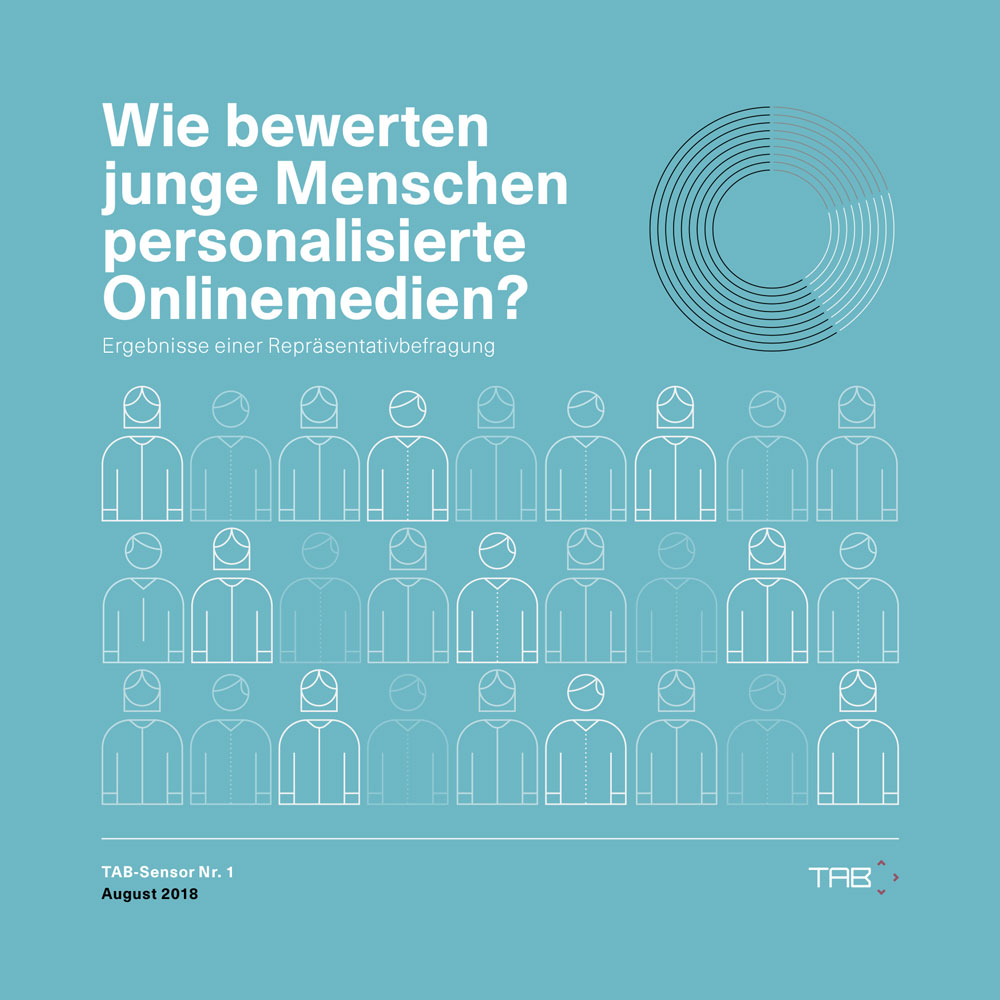How young people rate personalized online media
Search engines, social media, video and news platforms offer an important access route to information from politics and society, especially for young people. Information intermediaries such as Google and Facebook not only complement the services of traditional mass media news providers, but in some cases even replace them. By means of algorithm-based processes, a personalised news selection is compiled for each user. To do this, the intermediaries draw on previously collected data such as lists of interests and friends, saved search queries or accessed news articles. The TAB-Sensor therefore approaches the topic from the perspective of young people and deals with questions on the use and evaluation of a personalised news selection. The nationwide representative survey of people between 18 and 23 years of age represents one component of TAB's investigation on the topic of »Algorithms in digital media and their influence on opinion formation« . The results help to have a dialogue on the topic and to formulate options for action for the members of the German Bundestag.
For young people, information intermediaries are of great importance as news source . In terms of daily use, social media, search engines, video platforms and news aggregators are clearly ahead of the services of traditional media.
In the group of information intermediaries, two thirds of those surveyed most frequently use services operated by Facebook or Google. The short message service Twitter is used much less frequently.
Two out of ten respondents are not aware that many information intermediaries personalize news selection by means of usage data. Six out of ten have heard of it, but have not yet specifically read up on the subject. Knowledge about personalization increases with educational attainment.
The automatic pre-selection of news and articles on the basis of personal data is judged to be both an opportunity and a risk. Although three quarters of respondents state that they are no longer aware of information outside their main areas of interest, at least one in two people confirm that personalization helps them to become better informed.
Three out of five respondents consider it important for news to present different positions. Only just under half attach importance to news being produced by professional journalists.
The trustworthiness of news in online media is more often rated as low. However, it is also true that two out of five respondents trust eyewitness reports in social media more than contributions in traditional media.
In future, the TAB-Sensor series (published in German only, but with intuitively understandable graphics) will regularly present societal perceptions, assessments and views on issues of scientific and technological change. It will be based on empirical surveys of societal stakeholders, developed and evaluated according to scientific standards.
18.09.2018
Download:

